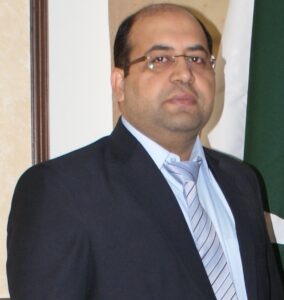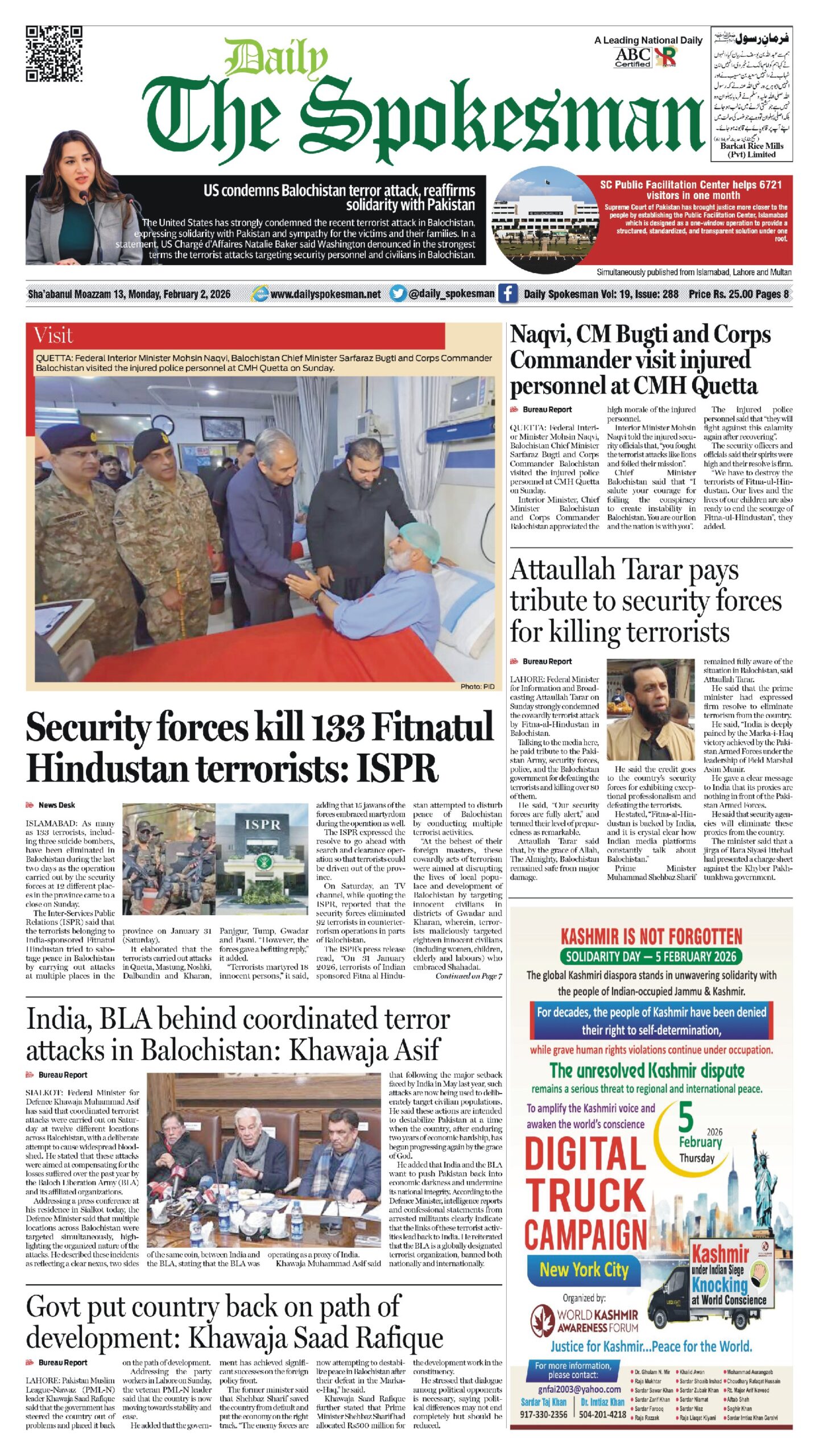
 By Amjad Mehmood
By Amjad Mehmood
Islamabad: During last week, the lives of Lahore and Islamabad citizens in particular, and the rest of Pakistanis, in general, remained under siege amid the melodramas of courts’ decisions, police actions, and political maneuverings. The situation developed after issuance of non-bailable arrest warrants of former prime minister and PTI Chairman Imran Ahmed Khan Niazi in Toshakhana case by Additional District and Sessions Judge, Zafar Iqbal in Islamabad.
In August 2022, Speaker National Assembly Mr. Raja Pervaiz Ashraf sent a reference to the Election Commission of Pakistan (ECP) under articles 62A, 63A, and 223 for seeking the disqualification of former Prime Minister Imran Khan in Toshakhana case. In October 2022, ECP declared Mr. Khan guilty of submitting false statements and incorrect declarations in his nomination papers. In November 2022, the ECP requested the court to initiate proceedings against Imran Khan under criminal law for allegedly concealing facts about the gifts he received from foreign dignitaries during his tenure as prime minister. A trial started in Islamabad court against Mr. Khan for allegedly indulging in corrupt practices and the court sent a notice to him as well. Mr. Khan never appeared before the court to advance the proceedings despite several notices and consequently, the court issued his arrest warrant.
After issuance of Mr. Khan’s arrest warrant, a never-ending turmoil situation developed followed by social and political unrest within the country. Media hype made it the most important and only issue in Pakistan. Islamabad police reached Zaman Park Lahore to arrest PTI Chief Imran Khan and his supporters camped outside the residence showed violent resistance. Public assets of millions of rupees have been destroyed in riots due to clashes between the police and PTI supporters who turned up against the arrest of their leader in Lahore and later gathered outside the Judicial Complex in Islamabad on March 18. According to the police statement, Imran’s supporters armed with batons and iron rods resisted in fulfilling the court orders by attacking the policemen. Apparently, it seems like a war between two hostile groups where conventional force is used against each other. Allegedly, the use of petrol bombs against the police force and presence of militants at Zaman Park are also reported.
Mr. Imran Khan traveled to Islamabad on March 18 accompanied by a rally of supporters to appear before Additional District and Sessions Judge, Zafar Iqbal who was relocated from F-8 courts to Islamabad Judicial Complex to formally indict the charges against Mr. Khan. However, PTI supporters and Islamabad police scuffled throughout the day, and parallel in Lahore, police reached Khan’s house with a search warrant and launched an operation to remove the encroachment in the area. The visuals received from both venues were not reveling. Despite the use of force, tear gas, water cannon, rubber bullets, throwing of glass balls, stones, petrol bombs, abusive slogans, burning assets, and blood on faces; PTI and Police were chanting the mantra of rule of law.
This ‘overwhelming romance’ with rule of law in Pakistan from political parties, law enforcement agencies, courts, and media is too pricey for the poor nation. Continuous unrest is becoming part of the mundane in Pakistan, especially when people suffer from hardships of economic turbulence. Where is the country heading? Who is responsible for all these circumstances, who will make all wrongs correct, and when? These are questions nowadays in the mind of every ordinary Pakistani but answers are nonexistent.
There is a clear majority in Pakistan who supports the democratic style of governance however, all advocates of democracy would have never imagined the contemporary version being witnessed in the country. The new trends being set by the courts through their shabby decisions, the police through their use of power, and the political parties through their lust for power, by all means, are counter-productive and capable enough to drag the country into a swamp of misery.
Media is highly polarized and miserably failed to play a socially responsible role in developing a national consensus on issues with fair reporting and intellectual honesty; rather a majority of media outlets and personalities are in a rating race and allegedly minting money from political sponsors. The influx of disinformation has the capacity to mold audiences’ minds in a targeted direction and this job becomes easier in a country like Pakistan where literacy rate and political cognition are very marginal. There are worshipers in Pakistan who blindly follow the political leaders putting aside their sense and self-reckoning.
Before putting the responsibility on the military establishment and political parties for the present-day situation in Pakistan, everyone should realize the pivotal role of the judiciary. Without discussing the non-transparent mode of appointment of judges in higher judiciary in Pakistan, there are hundreds of examples on record, when Pakistani courts preferred to compromise at the cost of the supremacy of justice. Conventionally, courts’ decisions are discussed in public and no one knows the name of the judges. While the customs in Pakistan are altogether opposite as everyone knows the names of judges and possible decisions before filing a case in their courts. This impulsiveness in the name of the law is actually running the law in Pakistan.
Imran Khan is undoubtedly enjoying massive public support due to his mastery of alluring public sentiments. Therefore, his responsibilities are higher than any other political leader in these challenging circumstances in Pakistan. He should always keep dear to the supremacy of law to become a real savior of the nation who does not support violence in politics. The PDM coalition government should focus on responsible governance instead of settling scores with PTI leadership. They can also get a public mandate through fresh elections rather than depending on the invisible support from ‘power elite’. The military establishment is under serious doubts about its self-claimed ‘neutral’ status in Pakistani politics. They are required to prove it with actions and if the quest is yet not accomplished then the ‘mask of neutrality’ would not help anymore.
Judicial activism in Pakistan is causing unrest in the political and economic spheres. The judiciary’s extraordinary interest in political cases and delivery of fast-track justice in selective manners is distorting the justice system. The courts’ notices and decisions regarding political leaders contradict each other and fueling uncertainty in society. The nation is paying a heavy price for this hide-and-seek game. The judiciary is also required to reassess its mandate and functional boundaries. The complex of ‘infinite power’ would only lead the judiciary on an itinerary of injustice. All stakeholders in Pakistan including political leaders, establishment, judiciary, and media should behave more responsibly according to their constitutional mandate for the sake of a better tomorrow and to avoid legal, moral, political, and economic collapse.







